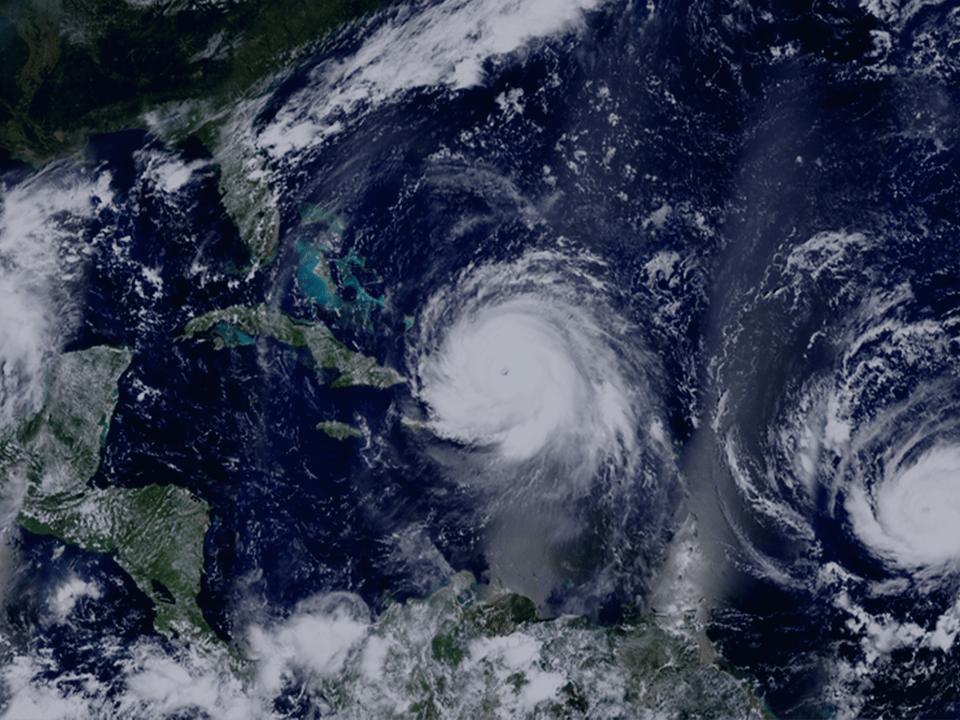Op-Ed Published October 9, 2018 · 4 minute read
3 Reasons For Hope in the IPCC’s New Climate Report
Lindsey Walter

The leading global climate authority, the UN's IPCC, just released a report about the importance of keeping global temperature rise to just 1.5 degrees C--and to be honest, it’s not an uplifting read. The report makes it clear that there are serious consequences for every additional fraction of a degree of global warming; and that we’re on track to blow right past the 1.5°C mark, even if Paris Agreement pledges are fulfilled. But amid the dire warnings and discouraging projections, there are reasons for hope scattered throughout this report. Here are three that stood out to me:
#1 We’re Not Too Late…Yet
The report states that “past emissions alone are unlikely to raise [global mean surface temperature] to 1.5°C above pre-industrial levels.” This means it is not inevitable that we will hit 1.5°C warming due to our past emissions.
There is still an opportunity, albeit a short one, to change our priorities and policies, commit to drastically reducing our emissions, and prevent a level of global warming that will cause irreversible and devastating impacts on people and the planet.
But don’t mistake this bit of good news as a justification to take a breather or confirmation that we are doing well enough already. The report also explains, “If emissions continue at their present rate, human-induced warming will exceed 1.5°C by around 2040.” We are definitely not on track, but the evidence shows we still have time to remedy that.
#2 We Can Fight Climate Change By Becoming More Resilient
To halt global warming, we ultimately need to reduce the amount of carbon dioxide in the atmosphere. But we can also fight back by making ourselves more resilient to the impacts of climate change, thereby reducing the toll it takes on people and the global economy. More than previous IPCC reports, this one makes it clear that resiliency solutions are climate change solutions, adding even more tools to our toolbox to help us fix this problem.
Poor and disadvantaged communities are the most impacted by climate change, bearing the brunt of the consequences for our global actions. By steering a relatively small percentage of our overall climate efforts toward lifting these people out of poverty and providing more economic and social opportunity, we can drastically lessen the damage from climate change.
Becoming more resilient is a proactive approach to protecting communities while tackling emissions reductions simultaneously--basically allowing us to attack climate change on two flanks.
#3 We are Capable of Making Rapid Transitions
The report explains that we need to make sweeping, global changes at a rate that has “no documented historic precedent” in order to stay below 1.5°C. But it also reminds us that we have made transitions this rapid “within specific sectors, technologies, and spatial contexts.” These examples of smaller, successful transitions offer reason for hope--that we could replicate and build upon them, again and again, across the globe, in order to see large-scale change. So it’s not a matter of “can we?”, but “will we?”.
Already, we’ve seen significant innovation in technologies to produce zero-carbon energy and even remove carbon dioxide from the atmosphere; both of which are highlighted as critical components of 1.5°C strategy. In fact, rapid transitions with wind, solar, and electricity storage suggest a larger “system transition in electricity generation may be underway.” Advancements in other low- and zero-carbon energy sources, including nuclear, geothermal, and carbon capture, could provide further crucial emissions reductions for the energy sector.
A rapid transition to a low-carbon world is challenging, but we can achieve it if we commit to doing so.
Stay Hopeful and Fight Like Hell.
The IPCC 1.5°C Special Report should be a wakeup call if there ever was one. While the odds may be stacked against us, the report confirms that this fight is far from over. We should strive to stop global warming at 1.5°C. But even if we surpass that, or 1.6°C, or even 2°C, we can’t give up hope. We’ll need to keep fighting back against every fraction of a degree, as each “small” victory could help millions of people, avoid billions in economic damages, and protect entire ecosystems.
